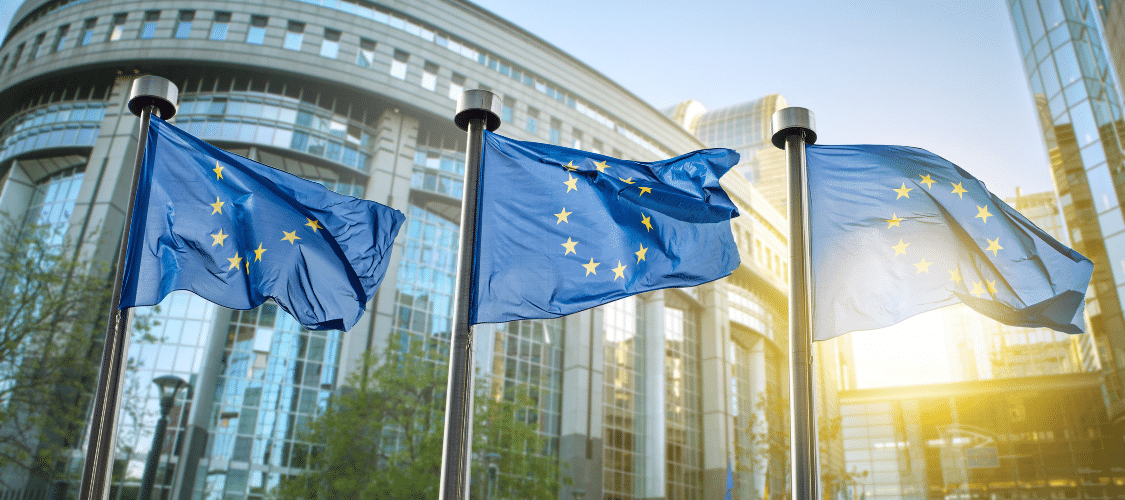Co-published with AnsvarligFremtid, Campax, Eko, European Federation of Ethical and Alternative Banks and Financiers (FEBEA), Facing Finance, Fair Finance Guide Sweden, Fair Finance International, Finance Watch, Finanzwende, Mazaska Talks, Milieudefensie – Friends of the Earth Netherlands, Mothers Rise Up, REVO Prosperidad Sostenible, ShareAction, Urgewald, WWF, Edouard Vilpoux (Studies and Advocacy Manager at Sustainable Finance Observatory), Guillaume Lorentz (Sustainable Finance Observatory), Jérôme Crugnola-Humbert (Chairperson, Sustainability & Climate-related Risks, Actuarial Association of Europe), Lydia Marsden (Research Fellow in Sustainable Finance, University College London), Ninni Kähkönen (Steel Specialist)
Dear Commissioner Albuquerque,
On 7 November 2024, EIOPA submitted its final report on the prudential treatment of sustainability risks to the European Commission. The report recognises that the financial risks of fossil fuel investments are underestimated and recommends adjustments to solvency capital requirements for insurers. Without swift action, these risks will keep building up, threatening not only Europe’s insurance sector but the stability of the entire financial system.
We urge you to prioritise a targeted review of Solvency II requirements in 2025 to address EIOPA’s findings. While this was not included in the Commission Work Programme published today, a review remains essential. In line with your commitment to ensure financial stability, we ask you to promptly address this and to confirm that a targeted review will take place this year to introduce the necessary adjustments to the Solvency II framework, based on EIOPA’s recommendations and in line with Member States’ votes and empirical findings. This would also be fully consistent with your commitment to respect the Level 1 agreement on Solvency II, which called for EIOPA to work on a report and make recommendations if needed- which they have now done.
As policyholders and taxpayers, European citizens expect insurance companies to protect them from current and future risks, including climate change, and they trust you as a legislator to guarantee the safety and soundness of the undertakings you regulate. This trust depends on ensuring that the regulation is based on solid empirical findings and a rigorous assessment of current and emerging risks. EIOPA’s findings clearly demonstrate the materially higher financial risk of fossil fuels.
If transition risks related to fossil fuels are left underpriced, investment decisions of insurers will be distorted towards a high share of fossil fuels, leading to a growing risk of disorderly transition and a growing physical risk of climate change. As recognised by the supervisory community, most recently in the report of the Financial Stability Board from 16 January 2025, both of these could lead to spill-over effects and potentially have far larger implications for financial stability than is reflected in the size of fossil assets in insurers’ investment portfolios. The Network for Greening the Financial System’s (NGFS) has also recently tripled the prediction of the economic damage from climate change, even if the most devastating impacts are still to be incorporated. This confirms the analysis that climate risks have been underestimated so far.
Financial stability frameworks face unprecedented emerging risks and need reinforcing to protect us from the challenges of the transition to a sustainable economy. Many civil society organisations and citizens have responded to consultations on EIOPA’s work and are now closely monitoring the outcome of this process, expecting their concerns to be taken into account. Timely amendments to Solvency II can address the problem while it is still manageable and avoid huge costs for both taxpayers and insurers down the line.
We would be pleased to discuss this with you further at your earliest convenience.
Yours sincerely,
Organisations:
- AnsvarligFremtid
- Campax
- Eko
- European Federation of Ethical and Alternative Banks and Financiers (FEBEA)
- Facing Finance
- Fair Finance Guide Sweden
- Fair Finance International
- Finance Watch
- Finanzwende
- Mazaska Talks
- Milieudefensie – Friends of the Earth Netherlands
- Mothers Rise Up
- Reclaim Finance
- REVO Prosperidad Sostenible
- ShareAction
- Urgewald
- WWF
Experts:
- Edouard Vilpoux, Studies and Advocacy Manager at Sustainable Finance Observatory
- Guillaume Lorentz, Sustainable Finance Observatory
- Jérôme Crugnola-Humbert, Chairperson, Sustainability & Climate-related Risks, Actuarial Association of Europe
- Lydia Marsden, Research Fellow in Sustainable Finance, University College London
- Ninni Kähkönen, Steel Specialist



